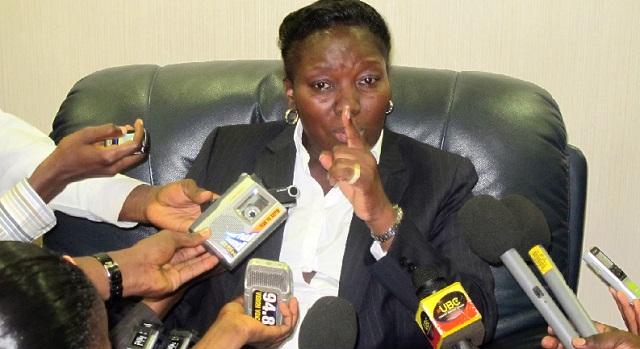
More specifically on the investigation, Semujju asked: “Who says those who are taking over the leadership of COSASE cannot do the work the current team has been doing?”
“Katuntu has done very commendable work,” Semujju said, “He is a fantastic person but unfortunately the rules do not allow that sort of extension.”
He added that as a way forward, he had written to the Speaker advising that the new team should go ahead and take office and then co-opt Katuntu to conclude the investigation.
He cited a precedent to make his point. When (former Deputy Chief Justice) Stephen Kavuma’s term expired, Semujju said, he was in the midst of handling election petitions, the authorities did not say let us extend your tenure. He left and other people took over.
“Tenure always has to come to an end,” Semujju added, “Sometimes people die. So what do you do in case someone has died?”
He emphasised that their position was that the tenure of all the 12 committees has come to an end and they would go ahead and reconstitute new ones.
While the impasse appears to affect only two people—Katuntu and among—it has much wider implications according to observers.
At one level, Kadaga has said that replacing the two could jeopardise the investigation into BoU, which is at a critical point.
Katuntu and among are also more knowledgeable about BoU issues owing to their involvement in the central bank’s affairs for almost a year now.
President Museveni selected Katuntu to lead a team to investigate a controversial Feb.8 staff reshuffle at BoU. This investigation, which they concluded late last year exposed them to the several other issues at BoU that could be of use even as they investigate the closure of the seven banks and write their report.
But for critics this might also be the problem with Katuntu’s leadership. Some suspect that his close association with BoU over the year might have compromised him and his team.
Matters are not helped by the fact that Kaunda and among are seen by hardcore opposition as regime sympathisers even though both of them are members of the FDC.
Some have even claimed that President Museveni has considered the two for cabinet positions in his effort to further poach from the opposition. These claims are fueled by the fact that the two have been closely working with President Museveni on different things.
Divided opposition
The insistence by the FDC leadership to kick Katuntu and Among out of COSASE before they complete their investigation could further drive a wedge between them and the opposition leadership.
Already, there is no love lost. Months after defeating General Mugisha Muntu to FDC party presidency last year, Patrick Amuriat Oboi, reshuffled opposition leadership in parliament.
In that reshuffle, Betty Aol Ochan, replaced Winnie Kizza as the Leader of Opposition; Budadiri West MP Nandala Mafabi replaced Angelina Ossege as the leader of the Public Accounts Committee (PAC).
Other Amuriat appointments included; William Nzoghu, Busongora County North, as a representative in the Pan-African Parliament, FrankaAkello, Agago Woman MP, as the new head of the committee on Local Government, Gilbert Olanya of Kilak South, as her deputy and Kaps Hassan Fungaroo, Obongi County MP, the new head of the Public Assurance committee.
Most importantly, Oboi appointed Munyagwa to replace Katuntu as the new chairman COSASE with Kasibante as his deputy.
“This wasn’t a reshuffle but a purge,” Katuntu said immediately after the reshuffle. Days later he said a purge was an overstatement given that Semujju Nganda who also supported Gen Mugisha Muntu was retained as opposition chief whip.
But it was not lost on many that indeed what characterised Amuriat’s changes— was that he used the changes to reward loyalists, also known as the `defiance camp’ with allegiance to FDC stalwart Kizza Besigye’s faction and a purge of those opposed to them.
 The Independent Uganda: You get the Truth we Pay the Price
The Independent Uganda: You get the Truth we Pay the Price



